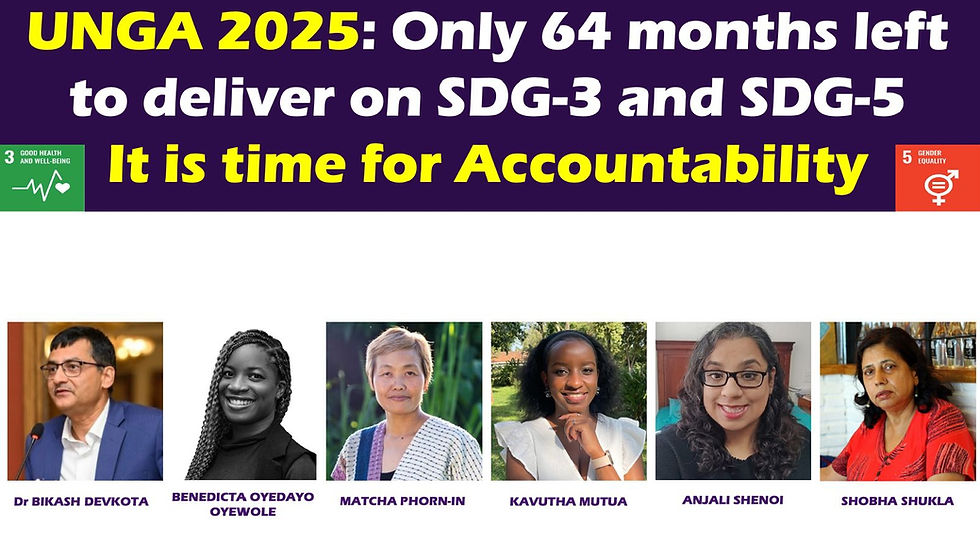Global Leaders Unite Against Antimicrobial Resistance (AMR)
- 365healthdiaries
- Oct 12, 2024
- 2 min read
Updated: Nov 12, 2024
By Hamu Madzedze-Online Health Editor,Zimbabwe
At the just ended 79th United Nations General Assembly (UNGA) High Level Meeting ,global leaders approved a landmark political declaration committing to reduce bacterial AMR-related deaths by 10% by 2030.
The declaration sets ambitious targets which include 70% of antibiotics used for human health to belong to the WHO Access group, all countries should have access to basic water,sanitation ,hygiene,waste management services in healthcare facilities and 90% of countries should meet WHO's minimum requirements for infection prevention and control programs.
The World Health Organisation (WHO )Director -General Dr Tedros Adhanom Ghebreyesus said antimicrobial resistance threatens to unwind progress made in medicine ,making it one of the most pressing health challenges.
"The declaration that includes vital commitment which if translated into action will help in tracking AMR , slow it down,expand access to antimicrobial medicines like antibiotics and spur the development of new ones"said Dr Ghebreyesus.
World Organisation for Animal Health (WOAH) Director -General Dr Emamanuelle Soubeyran said urgent action is needed in addressing the challenge of AMR .
"The prioritisation of preventative measures against infectious diseases in animals is of paramount importance" said Dr Soubeyran.
United Nations Environment Program (UNEP) Executive Director Inger Andersen highlighted that evidence is pointing out that the environment plays a significant role in the development ,spread and transmission of AMR including transmission between humans and animals to humans.
"If we are to reduce the burden of antimicrobial resistance and its risks ,the environment must be part of the solution" pointed out UNEP Executive Director.
Meanwhile AMR survivor and Chairperson of WHO Task Force of AMR Survivors and Founder Leader of the AMR Narrative, Vanessa Carter said patient voices are paramount in the fight against AMR.
"We must prioritise their stories to inform effective communication ,shape impactful policies ,drive innovation ,enhance medical education and implement strategies aimed at addressing AMR" said Carter.
Antimicrobial Resistance threatens the livelihoods of 1.3 billion people who depend on livestock with far reaching consequences .The World Bank projects an 11% decline in livestock production in low-income countries by 2050 under a high AMR impact scenario and it also increases costs for farmers and increases food prices.
Globally there are 4.95 million deaths per year associated with antimicrobial resistance with low and middle income countries bearing the burden of drug-resistant infections.
In Africa 1.05 million people across 47 countries in the WHO Africa Region died from a drug-resistant infection with 250 000 of those deaths directly caused by AMR.
#AMRin Africa
#Antimicrobial Resistance
#Global AMR
#Fight AMR
#Stop AMR
#One HealthApproach





Comments